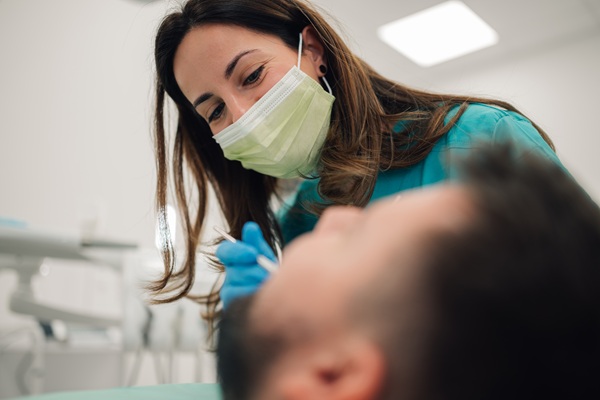How Does One Get Periodontal Disease?

Red, inflamed or swollen gums are often the sign of gingivitis, the first stage of periodontal disease or worse still, periodontitis. Plaque is the most common cause of the condition, but there are several others that can cause gum infection.
The causes of periodontal disease
The following are some of the common ways to get gum disease:
Plaque buildup
Gum disease is usually caused by plaque, which is a film of bacteria that forms on the gums and teeth and removable through daily brushing and flossing. Millions of people in the united states have one form of gum disease. Fortunately, early detection makes it possible to reverse the effects of the disease. A good oral care routine and regular dental checkups at least twice a year can help reduce plaque.
Smoking and chewing tobacco
Smoking inhibits the regular function of the gum tissue cells, making the mouth more susceptible to infections such as gum disease. Chewing tobacco is just as worse. Patients need to avoid the habit to prevent oral health issues.
Nutritional deficiencies
Getting the daily vitamins is difficult, but the deficiency of vitamin c could be detrimental to the gums. A diet with high sugar and carb and low water and vitamin C content is a recipe for periodontal disease. To prevent periodontal disease, it is advisable to drink a lot of water and get a balanced diet that is high in vitamin C.
Certain medications
Some medications cause side effects that can lower the production and flow of saliva, which may cause dry mouth, encouraging the further spread of bacteria. It is advisable to discuss prescription medications with the doctor before use.
Hormonal shifts
Women during pregnancy or their monthly menstrual cycles experience an increase and decrease in hormones, making the gums more prone to disease. Pregnancy does not automatically mean women will experience issues with their gums or teeth, but it means they will have to take extra steps for oral care at the period for oral health. The gums might become irritated, red or bleed slightly when brushing or flossing. These symptoms often disappear after pregnancy, but the dentist should still be aware of the symptoms.
Crooked teeth
It is common for teeth to become crooked, overlap or rotate. However, a crowded mouth can be a breeding area for gum disease, since dental misalignments create more areas for plaque to accumulate and wreak havoc on the teeth and gums. Patients need to take extra care if they have crooked teeth or visit the dentist for teeth straightening.
Family history
The dentist needs to know if there is a history of periodontal disease in the family. It might increase the risk of developing a bacterial infection.
In conclusion
Evidently, there are many potential causes of periodontal disease, all of which are manageable by being proactive with oral care. The best step to take after noticing the signs of the disease is to visit the dental office for treatment. The general dentist will examine the condition of the gums and recommend the appropriate treatment.
Request an appointment here: https://familydentistprescott.com or call Joseph A. Savoini D.M.D., P.C. at (928) 297-3040 for an appointment in our Prescott office.
Check out what others are saying about our dental services on Yelp: Periodontal Disease in Prescott, AZ.
Recent Posts
Teeth whitening helps many adults lift everyday stains while keeping appointments simple and predictable. At-home trays use dentist-recommended gel and a snug fit to gradually brighten enamel, supporting comfort and consistency. This approach fits busy routines, allows adjustments along the way, and encourages long-term shade maintenance with periodic touch-ups after professional cleanings.Teeth whitening gel contains…
A preventive dentist focuses on stopping problems before they start. By pairing routine checkups with good daily habits, patients protect enamel, gums, and long-term oral function. Seeing a preventive dentist helps catch early signs of decay or gum inflammation, guide at-home care, and plan simple treatments that preserve natural tooth structure. Preventive care also supports…
Dentures are one of the more common methods of tooth replacement and they often fall under the category of general dentistry services. Understanding what dentures are and who they are for can help you decide whether they or another type of general dentistry service is right for you.General dentistry services vary for each general dentist.…
Choosing the right dental office is essential for maintaining good oral health and ensuring a positive dental experience. When visiting a new dental office, it is important to ask the right questions to ensure the practice meets your specific needs and expectations. Whether you are new to the area or simply seeking a change, asking…


